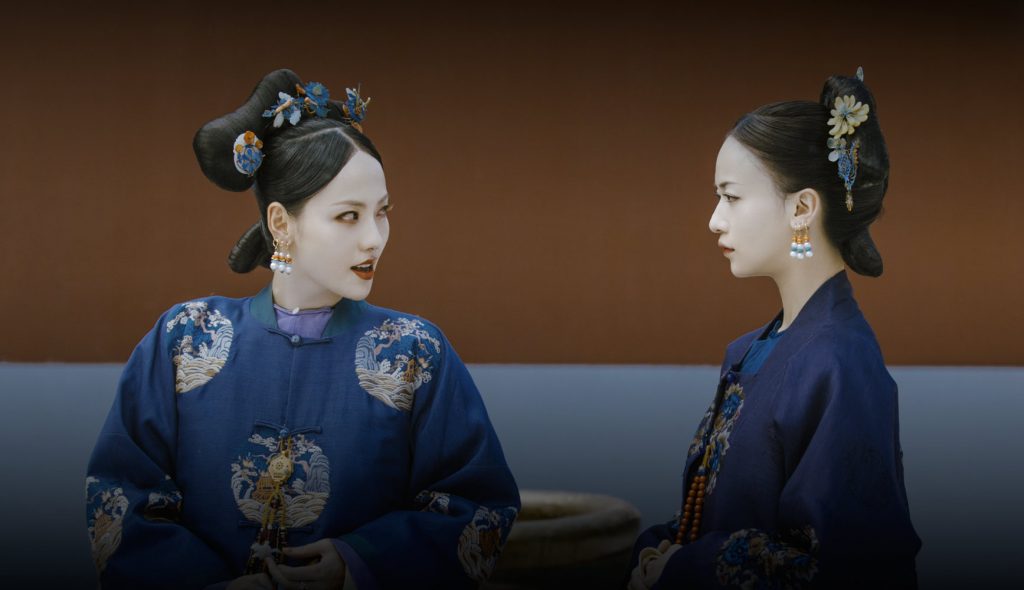From swarming unfaithful husbands to rewriting ‘Titanic,’ China’s ‘Three Outlooks Party’ is looking out for the country’s morals.
The camera lingers on the lovebirds as they stand, naked and tied to a tree, before it slowly pans to show a crowd of onlookers craning their necks for a better view.
It’s a pitiful scene, but when the video of the couple’s plight went viral on Chinese social media this February, the reaction wasn’t sympathy, but approbation: Comment sections quickly filled with users castigating the man — who police later confirmed had been caught in flagrante with his mistress — and applauding his wife and in-laws for supposedly having orchestrated the pair’s public shaming.
These zealous enforcers of propriety are part of what is known as the sanguan dang, or “Three Outlooks Party.” Together, they form one of the most distinctive and surprising groups in China’s internet ecosystem: strict moralizers in an increasingly amoral world.
Despite what the name may suggest, the party is not a close-knit organization with a clearly defined platform. Rather, it’s an umbrella term for a wide array of netizens — mainly young women — who share a similar outlook on life, the world, and morality, the “three outlooks” of the party’s name. At its core, however, their mission is simple: Re-sanctify traditional marital and familial values by any means necessary, which includes attacking anyone deemed to have violated either institution.
On popular social networks like Weibo, China’s Twitter equivalent, viral stories of errant husbands and cheated-upon wives are like magnets, drawing the attention and reprobation of netizens angry at what they see as the country’s declining moral climate. Those sympathetic to the party’s outlook are easily identified by their terminology: No-good husbands are zha nan, or “dregs men”; mistresses are xiao san, or “little thirds.”
Whenever a celebrity couple breaks up, they flock to criticize the man; videos of spurned wives violently beating their husbands’ mistresses are sure to garner applause. Once, curious why party members were so quick to pass judgment on other people’s relationships, I tried asking them how they knew the mistress was to blame. Soon, my comments were flooded with replies like “Only a xiao san would talk like that!” and “Go to hell, xiao san!”
Even fictional portrayals of broken marriages can arouse their ire. The recent TV series “My Father & Daddy,” which starred three well-liked actors, was ravaged by users of the popular review site Douban for its portrayal of a son trying to balance his relationship with his birth father and stepfather. Even the idea of a show acknowledging the existence of deadbeat dads or nontraditional families was apparently a step too far, and members pilloried the program for its “bad outlooks.”
The classics aren’t exempt from the party’s vitriolic sermonizing, either. “The ‘three outlooks’ of this movie are so sick!” reads one Douban review of Jane Campion’s 1993 film “The Piano.” Try to watch “The English Patient” on video-streaming site Bilibili, and you’ll quickly realize that the site’s popular “bullet screen” function, which lets users post scrolling comments over the videos themselves, has been inundated with comments like, “Why is this romance portrayed as something great? It’s just adultery!”
Some of the party’s moralizers go beyond complaining by modifying works to be more in line with their views. On online literature platforms, party-aligned users take it upon themselves to rewrite well-known stories they believe harbor “bad outlooks.” For example, the site is home to a number of fan fiction-like versions of “Titanic” in which Rose’s fiancé Cal is the sympathetic hero, while the handsome young Jack is portrayed as a callous homewrecker. Continue to read the full article here.
– This article originally appeared on Sixth Tone.







